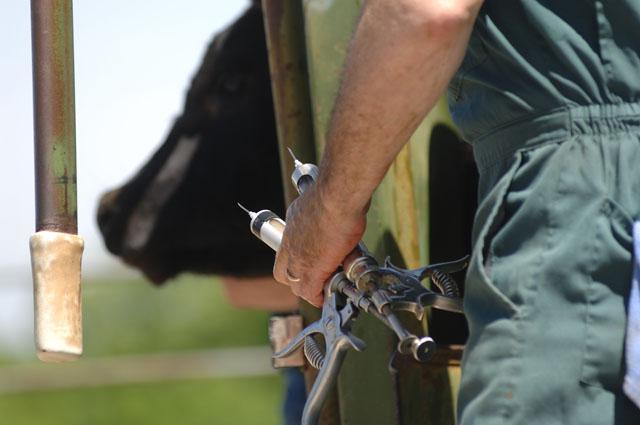Ag Policy Blog
Congress Offers Tax Incentive to Help Address Rural Veterinarian Shortage
Congress is looking at ways to address the veterinarian shortage in rural America.
Several senators this week introduced a bipartisan bill, the Rural Veterinary Workforce Act that would provide incentives such as tax benefits and paying down student loans to encourage veterinarians to practice in rural areas.
The senators said the bill would not only increase the care available to livestock and poultry, but also address food safety and public health concerns in these communities.
Rural communities face a chronic shortage of veterinary services, especially for larger livestock. USDA has declared 237 rural veterinary shortage areas in 47 states, which is more than any year to date. https://www.nifa.usda.gov/…
American Veterinary Medical Association (AVMA), citing work with other stakeholders, is championing the bill as well. The Rural Veterinary Workforce Act would end the federal taxation under the Veterinary Medicine Loan Repayment Program, known as VMLRP awards, which would enable more veterinarians to participate. The VMLRP offers up to $75,000 over three years for student loan repayment in exchange for service in U.S. Department of Agriculture-designated shortage areas.
Since 2010, USDA awarded 795 VMLRP awards to veterinarians; meanwhile, 2,061 applications have been received to participate in the program since its inception.
The problem with the VMLRP is that it is currently subject to a significant federal withholding tax, which limits available resources and the reach of its benefits. The Rural Veterinary Workforce Act provides an exemption from the federal income withholding tax for payments received under the program and similar state programs, helping give more veterinarians the opportunity to practice in small, rural communities where their services are needed most. This change would reflect similar exemptions provided to medical doctors and other human health practitioners.
P[L1] D[0x0] M[300x250] OOP[F] ADUNIT[] T[]
"Increasing veterinary services in high-priority rural areas through the Rural Veterinary Workforce Act would help keep the nation's livestock healthy and our food supply safe and secure, and protect public health," said Dr. Rena Carlson, president of the AVMA. "The AVMA has been a long-time champion of the proposed legislation. After the legislation received a historic level of support in the previous Congress, we look forward to working with the congressional champions to enact this bill and help rural communities across the country access the many essential services veterinarians provide."
The legislation also would expand the reach of the VMLRP -- a program that helps increase access to food animal veterinary services in rural areas by assisting with the significant obstacle of educational debt.
This will not only increase the care available to livestock and poultry, but also address food safety and public health concerns in these communities.
"Quality veterinary care is essential to the agricultural economy and public health in rural communities in Michigan and across the country," said Sen. Debbie Stabenow, D-Mich. "But too many communities lack the veterinary services they need. This bipartisan bill will provide incentives to veterinarians to practice in underserved areas, where quality veterinary care is needed to ensure healthy livestock and a safe food supply."
"Much of rural Idaho depends on the livestock industry, but the veterinarian shortage jeopardizes their ability to safely raise animals," said Sen. Jim Risch, R-Idaho. "The Rural Veterinary Workforce Act will incentivize veterinarians to practice in rural areas and protect the livelihoods of Idaho communities."
A companion bill was also introduced earlier this year in the House as well.
Sens. Cindy Hyde-Smith, R-Miss., and Amy Klobuchar, D-Minn., co-chairs of the first-ever Senate Veterinary Medicine Caucus and original cosponsors of the Rural Veterinary Workforce Act, issued the following statements:
"More and more evidence shows that the lack of veterinarians in rural America poses serious risks to protecting the food supply on which we and others around the world rely," Hyde-Smith said. "We can't give up on trying to make the VMLRP as effective as possible to increase veterinary care in underserved areas, which is why I support passing legislation to fix the unfair tax treatment of this program."
Klobuchar added, "Veterinarians are our first and best line of defense against animal diseases that threaten the health of both people and animals. But too many communities, particularly those in rural areas, are facing veterinary shortages. Improving the Veterinary Medicine Loan Repayment Program, which supports veterinarians serving in areas experiencing shortages, is critical to helping address this gap."
Chris Clayton can be reached at Chris.Clayton@dtn.com
Follow him on X, formerly known as Twitter, @ChrisClaytonDTN
(c) Copyright 2023 DTN, LLC. All rights reserved.






Comments
To comment, please Log In or Join our Community .